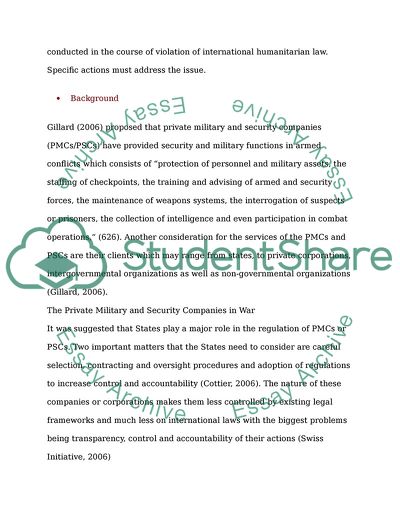Cite this document
(Legal Framework for Private Military and Security Companies Essay, n.d.)
Legal Framework for Private Military and Security Companies Essay. https://studentshare.org/social-science/1746863-editing-my-research-proposal-the-international-humanitarian-law-legal-framework-for-private-military-and-security-companies-within-the-european-union
Legal Framework for Private Military and Security Companies Essay. https://studentshare.org/social-science/1746863-editing-my-research-proposal-the-international-humanitarian-law-legal-framework-for-private-military-and-security-companies-within-the-european-union
(Legal Framework for Private Military and Security Companies Essay)
Legal Framework for Private Military and Security Companies Essay. https://studentshare.org/social-science/1746863-editing-my-research-proposal-the-international-humanitarian-law-legal-framework-for-private-military-and-security-companies-within-the-european-union.
Legal Framework for Private Military and Security Companies Essay. https://studentshare.org/social-science/1746863-editing-my-research-proposal-the-international-humanitarian-law-legal-framework-for-private-military-and-security-companies-within-the-european-union.
“Legal Framework for Private Military and Security Companies Essay”. https://studentshare.org/social-science/1746863-editing-my-research-proposal-the-international-humanitarian-law-legal-framework-for-private-military-and-security-companies-within-the-european-union.


